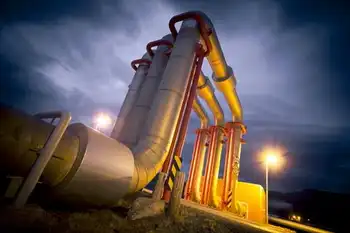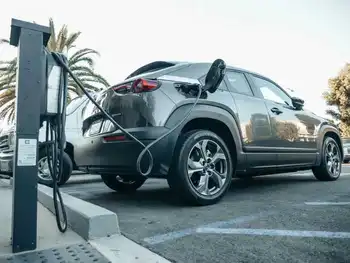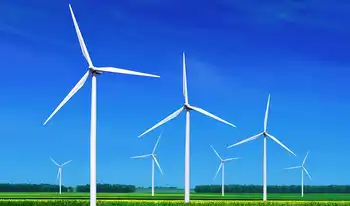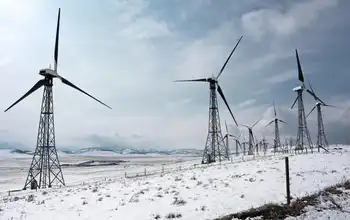Clean Energy Accounts for 50% of Germany's Electricity
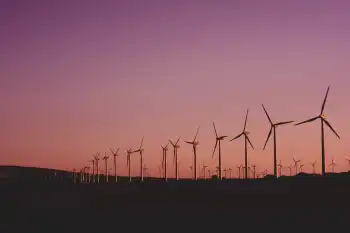
CSA Z462 Arc Flash Training - Electrical Safety Essentials
Our customized live online or in‑person group training can be delivered to your staff at your location.

- Live Online
- 6 hours Instructor-led
- Group Training Available
Germany Renewable Energy Milestone marks renewables supplying 53% of power, with record onshore wind and peak solar; hydrogen-ready gas plants and grid upgrades are planned to balance variability amid Germany's coal phase-out.
Key Points
It marks renewables supplying 53% of Germany's power, driven by wind and solar records in the energy transition.
✅ 53% of generation and 52% of consumption in 2024
✅ Onshore wind hit record; June solar peaked
✅ 24 GW hydrogen-ready gas plants planned for grid balancing
For the first time, renewable energy sources have surpassed half of Germany's electricity production this year, as indicated by data from sustainable energy organizations.
Preliminary figures from the Center for Solar Energy and Hydrogen Research alongside the German Association of Energy and Water Industries (BDEW) show that the contribution of green energy has risen to 53%, echoing how renewable power surpassed fossil fuels in Europe recently, a significant increase from 44% in the previous year.
The year saw a record output from onshore wind energy, as investments in European wind power climbed, and an unprecedented peak in solar energy production in June, as reported by the organizations. Additionally, renewable sources constituted 52% of Germany's total power consumption, marking an increase of approximately five percentage points.
Germany, Europe's leading economy, heavily impacted by Russia's reduced natural gas supplies last year, as Europeans push back from Russian oil and gas across the region, has been leaning on renewable sources to bridge the energy gap. This shift comes even as the country temporarily ramped up coal usage last winter. Having phased out its nuclear power plants earlier this year, Germany aims for an 80% clean energy production by 2030.
In absolute numbers, Germany produced a record level of renewable energy this year, supported by a solar power boost during the energy crisis, approximately 267 billion kilowatt-hours, according to the associations. A decrease of 11% in overall energy production facilitated a reduced reliance on fossil fuels.
However, Europe's transition to more sustainable energy sources, particularly offshore wind, has encountered hurdles such as increased financing and component costs, even as neighbors like Ireland pursue an ambitious green electricity goal within four years. Germany continues to face challenges in expanding its renewable energy capacity, as noted by BDEW’s executive board chairwoman, Kerstin Andreae.
Andreae emphasizes that while energy companies are eager to invest in the transition, they often encounter delays due to protracted approval processes, bureaucratic complexities, and scarcity of land despite legislative improvements.
German government officials are close to finalizing a strategy this week for constructing multiple new gas-fired power plants, despite findings that solar plus battery storage can be cheaper than conventional power in Germany, a plan estimated to cost around 40 billion euros ($44 billion). This initiative is a critical part of Germany's strategy to mitigate potential power shortages that might result from the discontinuation of coal power, particularly given the variability in renewable energy sources.
A crucial meeting involving representatives from the Economy and Finance Ministries, along with the Chancellor's Office, is expected to occur late Tuesday. The purpose is to finalize this agreement, according to sources who requested anonymity due to restrictions on public disclosure.
The Economy Ministry, spearheading this project, confirmed that intensive discussions are ongoing, although no further details were disclosed.
Germany's plan involves utilizing approximately 24 gigawatts (GW) of energy from hydrogen, including emerging offshore green hydrogen options, and gas-fired power plants to compensate for the fluctuations in wind and solar power generation. However, the proposal has faced challenges, particularly regarding the allocation of public funds for these projects, with disagreements arising with the European Union's executive in Brussels.
Environmental groups have also expressed criticism of the strategy. They advocate for an expedited end to fossil fuel usage and remain skeptical about the energy sector's arguments favoring natural gas as a transitional fuel. Despite natural gas emitting less carbon dioxide than coal, environmentalists question its role in Germany's energy future.







